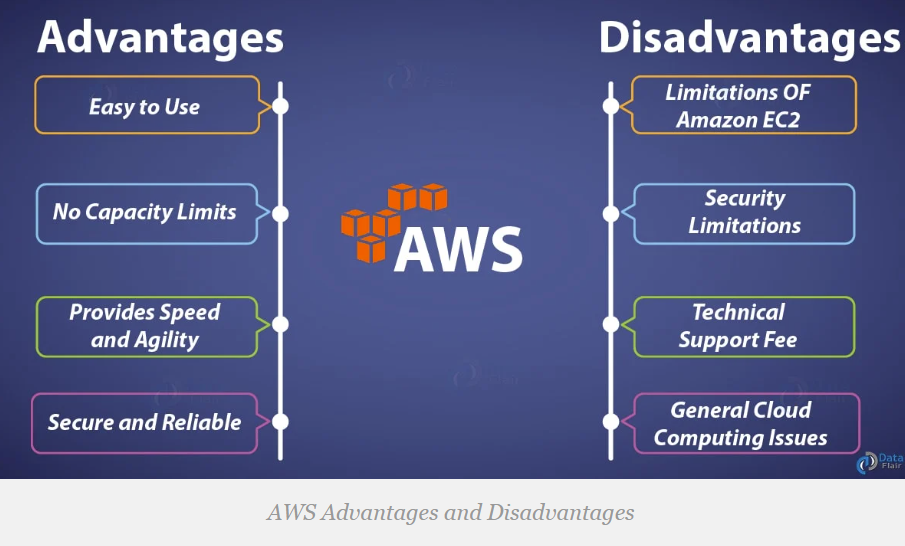Cloud technology has brought about a transformation in the way businesses operate, creating new chances for innovation, scalability, and cost effectiveness. Yet, having a significant amount of power requires a considerable amount of responsibility.
The concerns about resilience, lock-in, and systemic risks have become more prominent as more companies move their operations to the cloud. But the question is are we justified in having these concerns about cloud technology, or are we failing to consider its advantages and drawbacks?
Well, Alan Waite, a managing vice president of the analyst firm Gartner’s Technical Professionals advisory service, suggests that instead of worrying, it’s now time to appreciate the advantages of cloud technology.
This blog post will delve deeper into Waite’s comments and explore the benefits and limitations of cloud technology.
Major Concerns Surrounding Cloud Technology
There are several concerns surrounding cloud technology, with the main concerns being the following:
The Dominance of Suppliers
Cloud technology raises one major concern regarding the dominance of a few big suppliers, namely AWS, Microsoft, and Google, who concentrate the majority of the services. Waite recognizes that there is a problematic consolidation of market power and operational risk.
However, he believes that traditional vendor management methods are suitable for handling large cloud providers, additionally adding that it is important to comprehend the services offered by each cloud provider and utilise them effectively.
The Resilience of Cloud Technology
According to Waite, there are concerns about the resilience of cloud technology. However, Gartner data on cloud resilience shows that outages are becoming less frequent and less severe, with outages only affecting a few services in a single region for a few hours.
Although a massive cloud failure that could result in a worldwide outage is a worrying thought, the chances of it happening are low. And it is believed that even if it did happen, an individual organisation’s efforts to improve resilience would likely have little impact.
Being Locked into a Particular Provider
Another common concern amongst individuals is that many people worry about getting stuck with a single cloud provider. Changing to a different cloud provider can be a difficult and costly process, especially after an organisation has made significant investments in their current provider.
According to Waite, every technology decision involves some degree of lock-in, which means being committed to the way of doing things of your chosen cloud provider, even if it may feel restricting. Though, he also highlighted the importance of comprehending the services offered by each provider and utilising them effectively.
Organisations can hopefully prevent any lock-ins and additionally maximise their cloud investment benefits by following this approach.
The Technology has Limitations
It should also be said that it has been brought to attention that cloud technology does have limitations. Although it has several advantages, it isn’t suitable for all IT requirements.
Therefore, it’s important for organisations to assess their requirements and decide which tasks are most appropriate for cloud technology, and which ones may be more effectively handled by on-site solutions.
By following this approach, organisations can ensure optimal use of cloud technology without sacrificing performance or security.
📌Google Cloud launches Cryptomining Protection Program📌
— itnews.lk (@itnews_lk) June 10, 2023
See more details.. https://t.co/W1OxOFDbhb#cloud #team #security #cybersecurity #google #help #cryptomining #malware #technology #infrastructure #imatech #imatechlk #itnewslk
Solutions Proposed to Address the Concerns
Instead of worrying about the resilience of cloud technology, Waite advises organisations to embrace its own resiliency features. Each cloud provider has their own tools and features to ensure the reliability and security of their services. Organisations can improve the resilience of their operations by utilising these features to their fullest potential.
Additionally, He suggested using a secondary cloud as a “lightweight alternative” during outages to offer customers and regulators a simplified version of applications and services. In order to demonstrate the concept, he said that retailers could create a simplified version of their website containing only static content and host it on a separate cloud. If the primary cloud system of a retailer goes down, they would still be able to conduct sales using a simpler alternative method.
However, He suggested that banks should create lightweight alternatives, hosted in secondary clouds, that can fulfil the minimum required service, as defined by regulators, and nothing beyond that; with several lightweight options being available that can synchronise data and speed up the operational process.
Advantages of Using Cloud Technology
The advantages of cloud technology are numerous. One of the most important ones is its ability to quickly scale operations and rapidly develop new features without requiring additional infrastructure investments.
The flexibility of the cloud also allows organisations to select from a variety of different services, giving them more control over their IT operations while reducing costs and downtime. Additionally, cloud solutions provide superior security, as organisations can rely on the cloud provider for all of the necessary security safeguards.
Finally, cloud technology enables organisations to respond quickly to their customers’ needs by allowing them to deploy new services or features in minutes, rather than days or weeks. This flexibility ensures that companies are able to keep up with changing customer demands and trends.

Final Thoughts
It is becoming increasingly clear that cloud technology offers many benefits, but it also has its limitations and concerns. To achieve innovation, scalability and cost efficiency, organisations can take advantage of cloud technology while being aware of its limitations.
Instead of being concerned about the risks posed by clouds such as lock-in and systemic risks, organisations should concentrate on utilising the services provided by each cloud provider to the fullest and assess their IT requirements thoughtfully.
By opting to take the right approach and when using an effective strategy, cloud technology can greatly enhance the success and achievements of any business.









